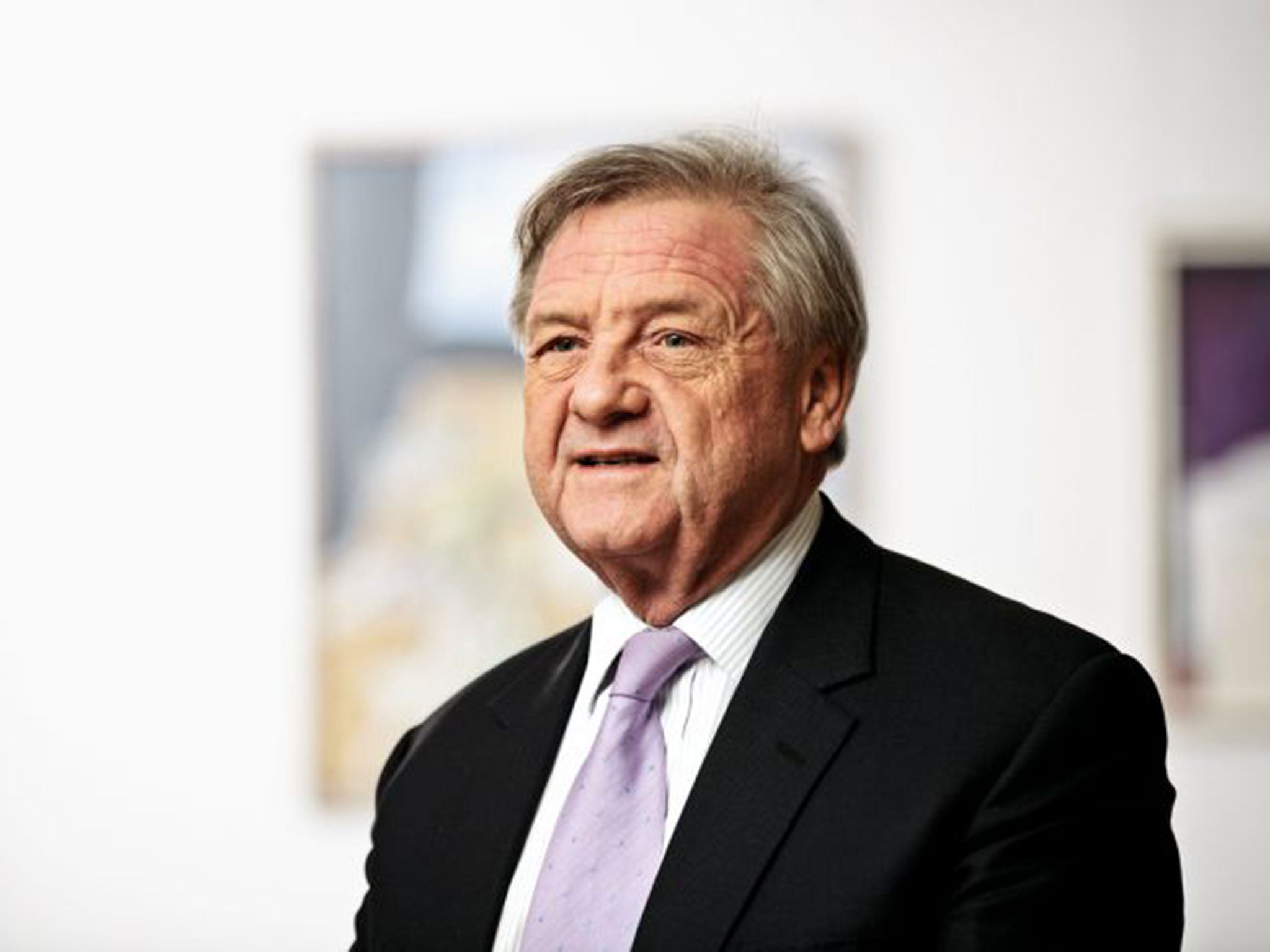Sir Mike Rake's corporate progress keeps him spinning an awful lot of plates
Outlook: Pick a flotation candidate – any candidate – and you will find directors and owners having second thoughts

It wasn’t so very long ago that we were talking about London’s flotation fever. The carnage induced by the popping of China’s stock-market bubble has brought that to a rapid end. The rumours of rumoured floats being cancelled are already doing the rounds. That’s bad news for the City, although one of its more senior figures may have cause to feel some relief.
Sir Mike Rake is not only the newly minted chairman of payment processing company Worldpay, he is the chairman of BT and a senior non-executive director and deputy chairman of Barclays (a role he wants to relinquish but cannot until the bank has found an acceptable replacement).
If Worldpay presses ahead with an IPO, he will be left spinning more plates than a cruise-ship cabaret artist. However, the FTSE 100’s China-induced woes now make a sale more likely. That’ll keep Sir Mike busy enough, but negotiating with one party is very different to flying here, there and everywhere in an attempt to sell a company to a group of international investors.
Worldpay might not be alone. Pick a flotation candidate – any candidate – and you will find directors and owners having second thoughts. At best, they will sit on their hands; at worst, they will put their plans on hold until the markets have recovered, which might take some time. All of this is good news if you’re a dentist: there are an awful lot of teeth being gnashed by an awful lot of professionals in the City.
Still, while one door closes, another one opens. Cheap shares make for cheap deals for anyone in the corporate world with the chutzpah to take advantage of the offer. So investment bankers will be queuing up outside big, financially strong companies with interest in a little growth fuelled by mergers and acquisitions. The lawyers, accountants and PR consultants will be close behind them.
Bankers will have to be good at selling to persuade potential clients of the merits of their deal ideas. But they will be motivated to do so because otherwise they may find themselves taking extended holidays. Floats bring in revenue and finance directors are inclined to look for savings when the taps are turned off. That will make for a cold winter for those who can’t quickly find new revenue-spinning ways to use their time.
Barclays swims to victory from the ‘dark pool’
Another piece of good news in Sir Mike’s in-tray is that Barclays, which has been taking shots from just about everyone over the past few years, has just claimed a significant legal victory in the US.
Investors had sued the bank, and several other anonymous share-trading venues, over the use of their “dark pool” facilities by high-frequency traders (HFTs), whose activities had a spotlight turned on them by Michael Lewis’s best-selling book Flash Boys. The investors had accused the exchanges of rigging the game in favour of HFTs before they had taken to the pitch, and misleading them about its safety.
Au contraire, said US District Judge Jesse Furman, who decided that the dark-pool organisers didn’t break any laws (they’re self-regulatory organisations, you see).
And even if they misled you, it wasn’t their statements which persuaded you to do business with them. Game over? No, this is the US legal system. It’s just round one. There are also other cases pending, notably one brought by the Attorney-General of New York. But Barclays’ trainers now have cause to feel good about letting their fighter square up to the latter.
Judge Furman did say that, while it wasn’t his place to intervene, it might be an idea for politicians and regulators to take action over HFTs, as Mr Lewis has suggested. Critics – and I’m one of them – argue that using sophisticated technology to push through a bewildering number of trades at high speed is useful to no one other than the HFTs. Their advocates say that they provide liquidity (in other words, they facilitate trading), but that’s a circular argument at best. However, they have got very rich by doing what they do and, sadly, in American politics money talks.
Tata’s EU warning to Britain carries weight
The Indian conglomerate Tata’s warning that Britain is better off staying in the European Union carries a great deal of weight, even though the same thing has been said by the bosses of other multinationals, both British and foreign.
One reason often cited by Eurosceptics for quitting the EU is that it would free the UK to concentrate on trading with the dynamic economies of Asia, which are young, feisty and fast-growing, compared with a sclerotic Europe. India is among their number, and David Cameron has spent a great deal of time and energy courting Indian political and business leaders, albeit with mixed results.
Tata, however, is an Indian business that is active in Britain. Nirmalya Kumar, a member of the group’s executive council, told the BBC that while the EU decision was one for the British people (they all say that), Britain being in the EU made it easier for Tata to access markets and “many of our investments in the past have been based on that understanding”.
As Mr Kumar says, it’s not rocket science to see the business benefits of being in the EU. But we need people like him to keep making that case now that Labour, the mainstream of which tends to favour a more constructive relationship with the EU than the Tories do, has opened the door to a suicide booth.
Subscribe to Independent Premium to bookmark this article
Want to bookmark your favourite articles and stories to read or reference later? Start your Independent Premium subscription today.

Join our commenting forum
Join thought-provoking conversations, follow other Independent readers and see their replies